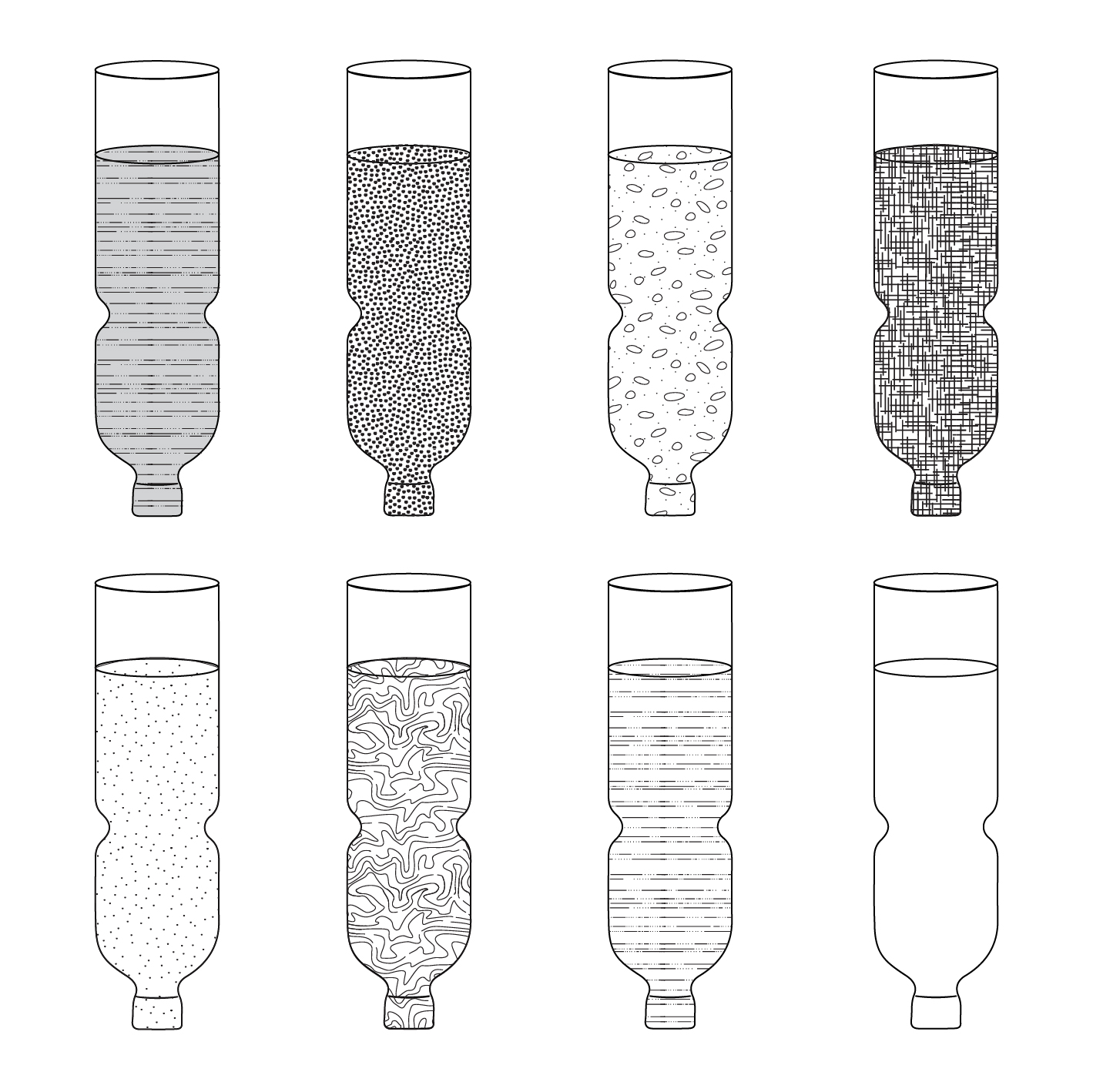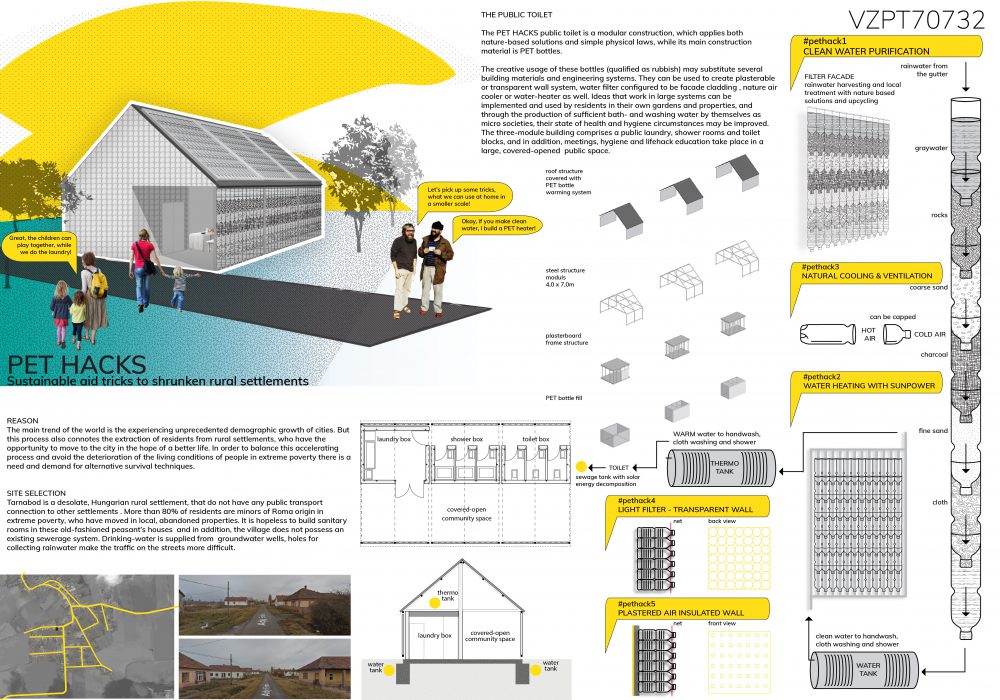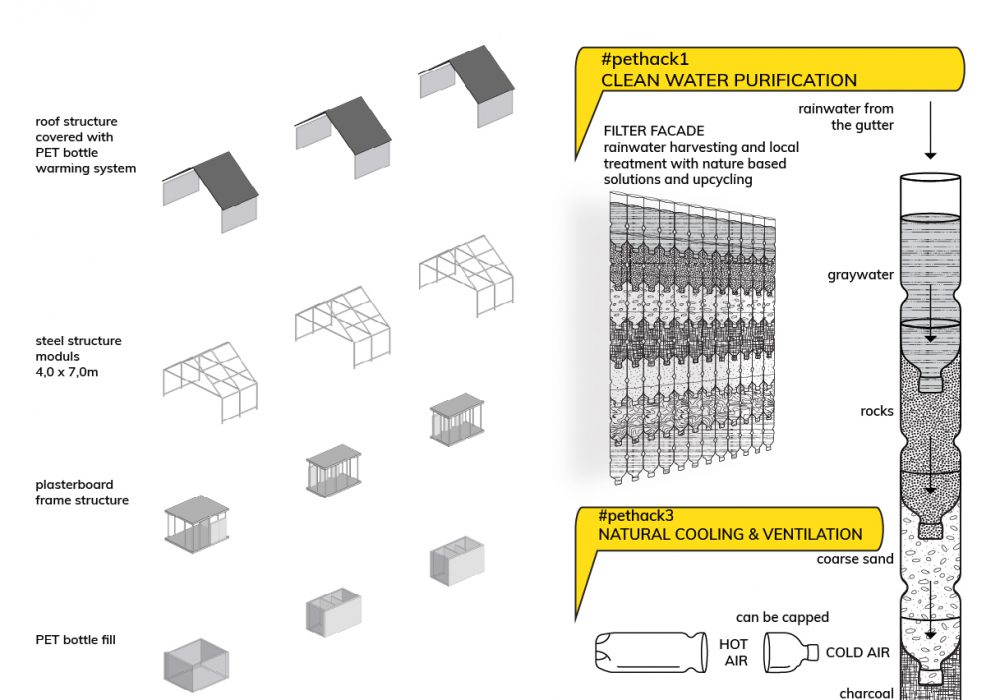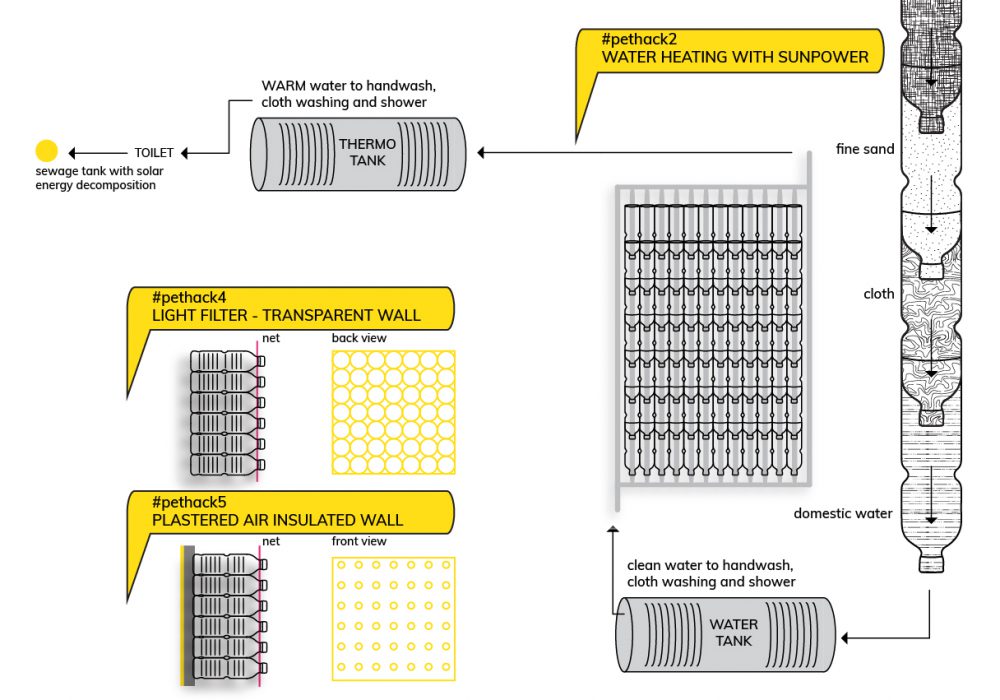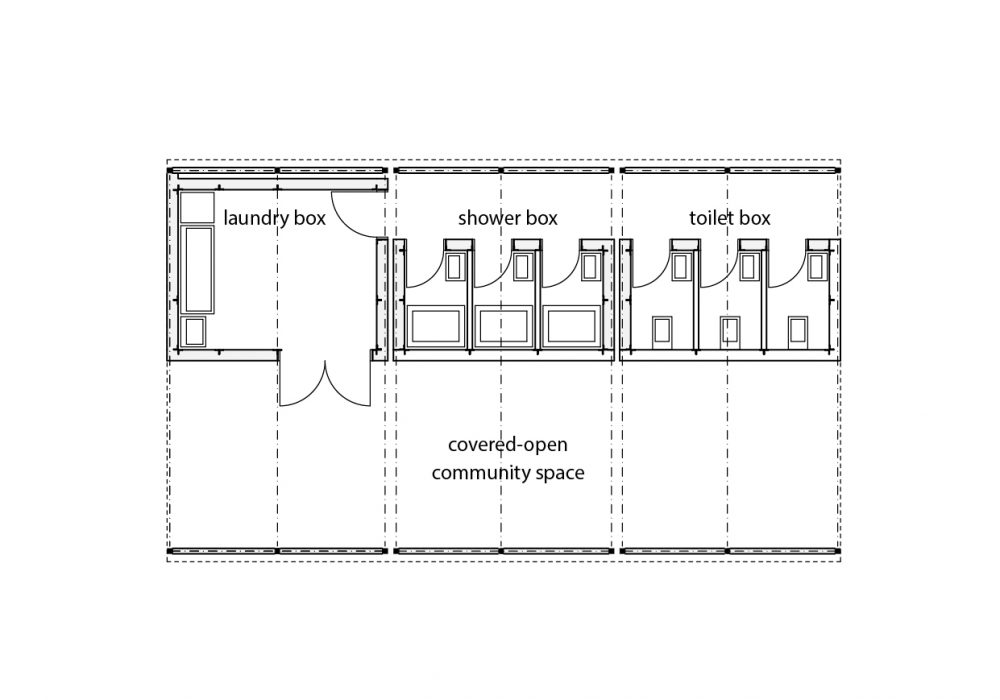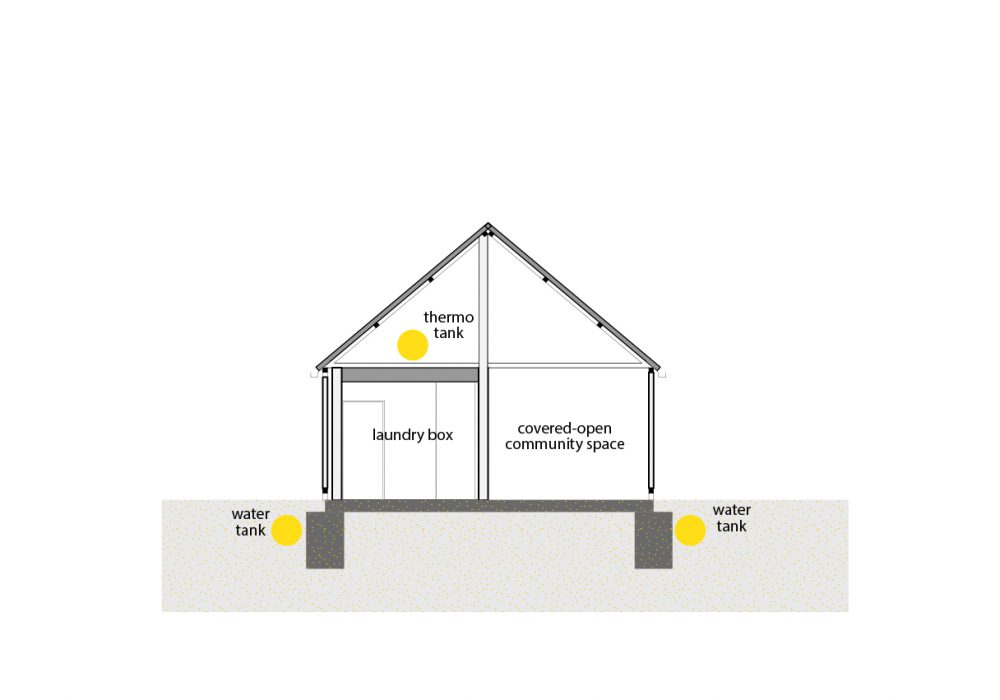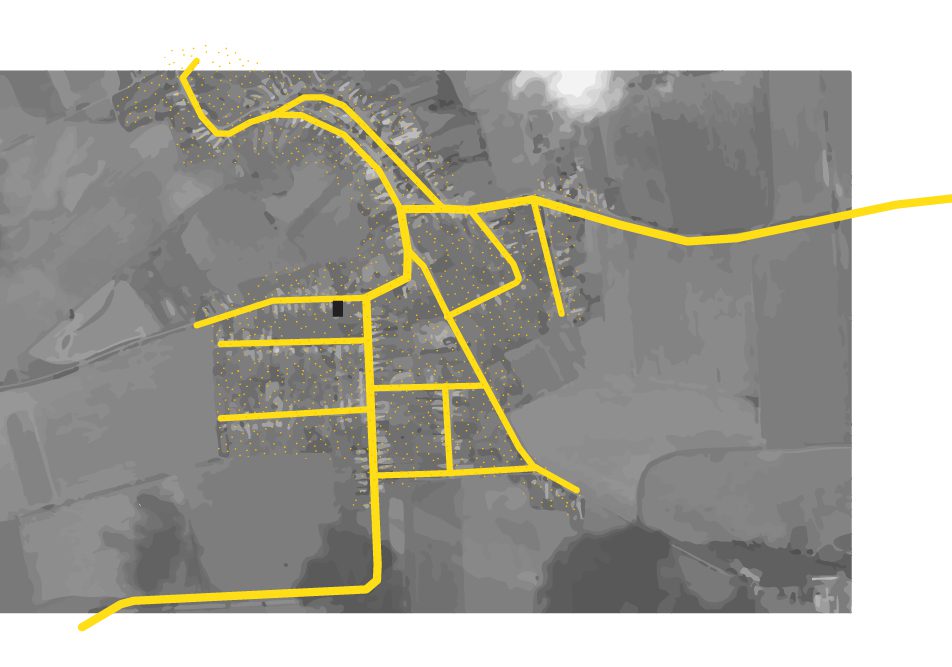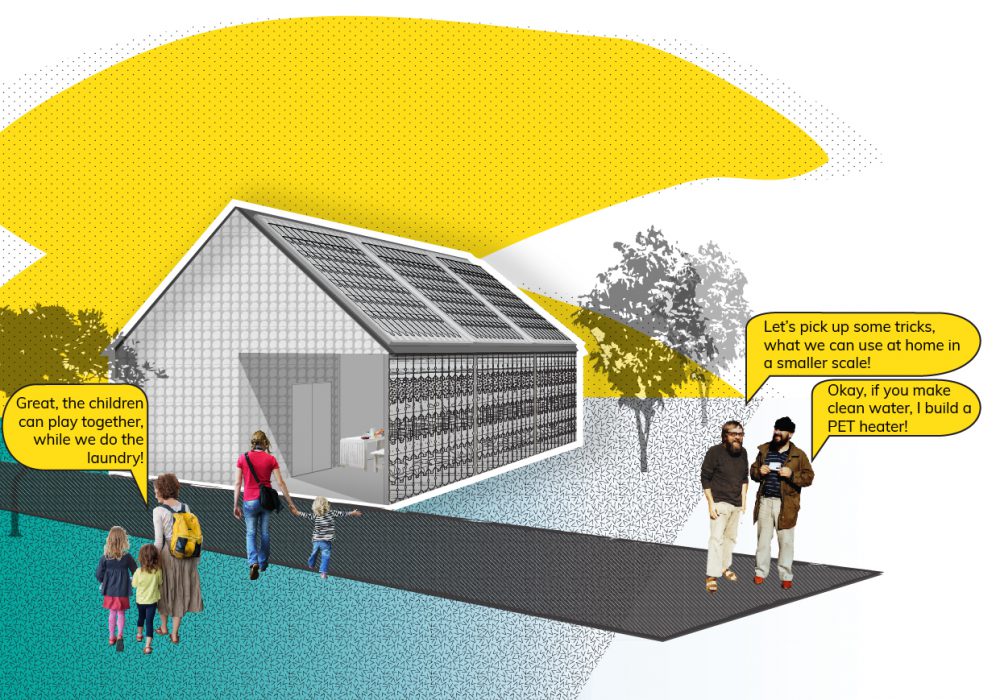PET HACKS – Sustainable aid tricks to shrunken rural settlements
UFLab participated in The Little Big Loo – Rethinking Public Toilets 2020 – Architecture Competition by Volume Zero.
REASON – The main trend of the world is the experiencing unprecedented demographic growth of cities. But this process also connotes the extraction of residents from rural settlements, who have the opportunity to move to the city in the hope of a better life. In order to balance this accelerating process and avoid the deterioration of the living conditions of people in extreme poverty there is a need and demand for alternative survival techniques.
SITE SELECTION – Tarnabod is a desolate, Hungarian rural settlement, that do not have any public transport connection to other settlements. More than 80% of residents are minors of Roma origin in extreme poverty, who have moved in local, abandoned properties. It is hopeless to build sanitary rooms in these old-fashioned peasant’s houses and in addition, the village does not possess an existing sewerage system. Drinking-water is supplied from groundwater wells, holes for collecting rainwater make the traffic on the streets more difficult.
THE PUBLIC TOILET – The PET HACKS public toilet is a modular construction, which applies both nature-based solutions and simple physical laws, while its main construction materials are PET bottles. The creative usage of these bottles (qualified as rubbish) may substitute several building materials and engineering systems. They can be used to create plasterable or transparent wall system, water filter configured to be facade cladding, nature air cooler or water-heater as well. Ideas that work in large systems can be implemented and used by residents in their own gardens and properties, and through the production of sufficient bath- and washing water by themselves as micro societies, their state of health and hygiene circumstances may be improved. The three-module building comprises a public laundry, shower rooms and toilet blocks, and in addition, meetings, hygiene and lifehack education take place in a large, covered-open public space.
Architects: Olívia Kurucz and György Alföldi DLA

